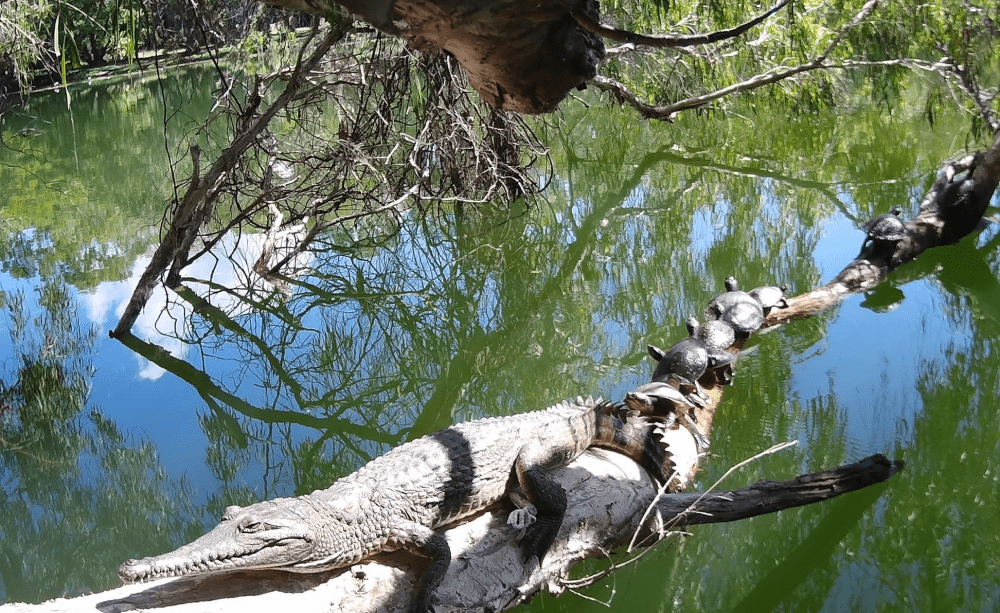Walking past Central Park’s waterways in New York City often involves some turtle gymnastics as these freshwater animals pile on top of one another to get the best spot in the sun. Basking during the day is well recognized, but it seems that nocturnal basking is more popular than expected, as new research has discovered that many species of turtles are also bathing in the moonlight.
The unusual observation comes from Postdoctoral Researcher at La Trobe University, Dr Donald McKnight, who first observed freshwater turtles nocturnal basking in Australia with colleague Dr Eric Nordberg at the University of New England. Here, turtles were spotted soaking up the moonlight on the banks of the Ross River in Townsville.
“They were coming up at night and sitting on logs exhibiting very much the same behavior they do during the day; when we looked into it, it wasn’t something that turtles reportedly did,” McKnight said in a statement. “We think it’s related to temperature. The water is staying so warm at night that it’s actually warmer than the turtles like to be and they can cool down by coming out of the water.”
To establish if nocturnal basking was a widespread behavior or just the hijinks of a few weird animals, a study team set up cameras across the globe focused on possible basking logs to see when and how freshwater turtle species were using them. The cameras were set up in 25 locations across Australia, Belize, Germany, India, Seychelles, Senegal, Trinidad and Tobago, the USA, and South Africa.

Apparently, logs can get a little crowded when sunbathing in Townsville, Queensland, Australia. Image credit: Dr Eric Nordberg, The University of New England
Freshwater turtles from 29 species were included in the recordings, covering seven of the freshwater turtle families. Of these, 13 species were observed nocturnal basking, covering six of the seven families included in the study.
“It’s widespread across the turtle family tree,” continued McKnight, “with the caveat that it is only in the tropics and the subtropics where it occurs.”
The fact that the behavior is apparently restricted to tropical and sub-tropical locations supports the hypothesis that environmental temperature plays a role in this behavior. Further investigation is still needed to ascertain the role of geography versus species in whether or not turtles are basking in the moonlight.
There were also some trends as well as differences in the turtles’ patterns of nocturnal basking.
“The frequency and duration of nocturnal basking varied among species and seasons, but nocturnal basking events were often substantially longer than diurnal events,” concluded the study authors. “This is the first study to document a widespread occurrence of nocturnal basking, and our results suggest that nocturnal basking may be a common, although overlooked, aspect of many species’ ecology.”
Put away your sunscreen, we’re going moonbathing.
The study is published in Global Ecology and Conservation.
Source Link: Curious Observation Reveals Wild Freshwater Turtles Are Basking In The Moonlight